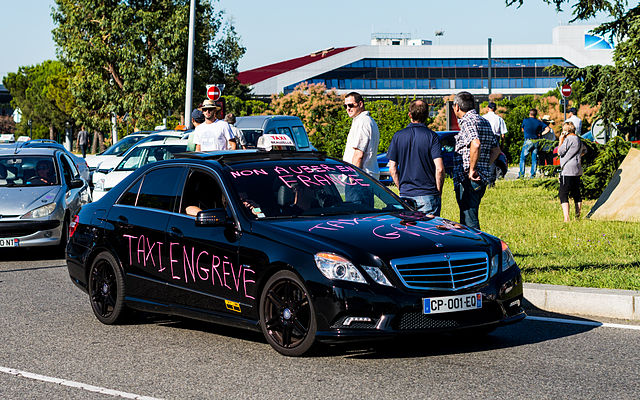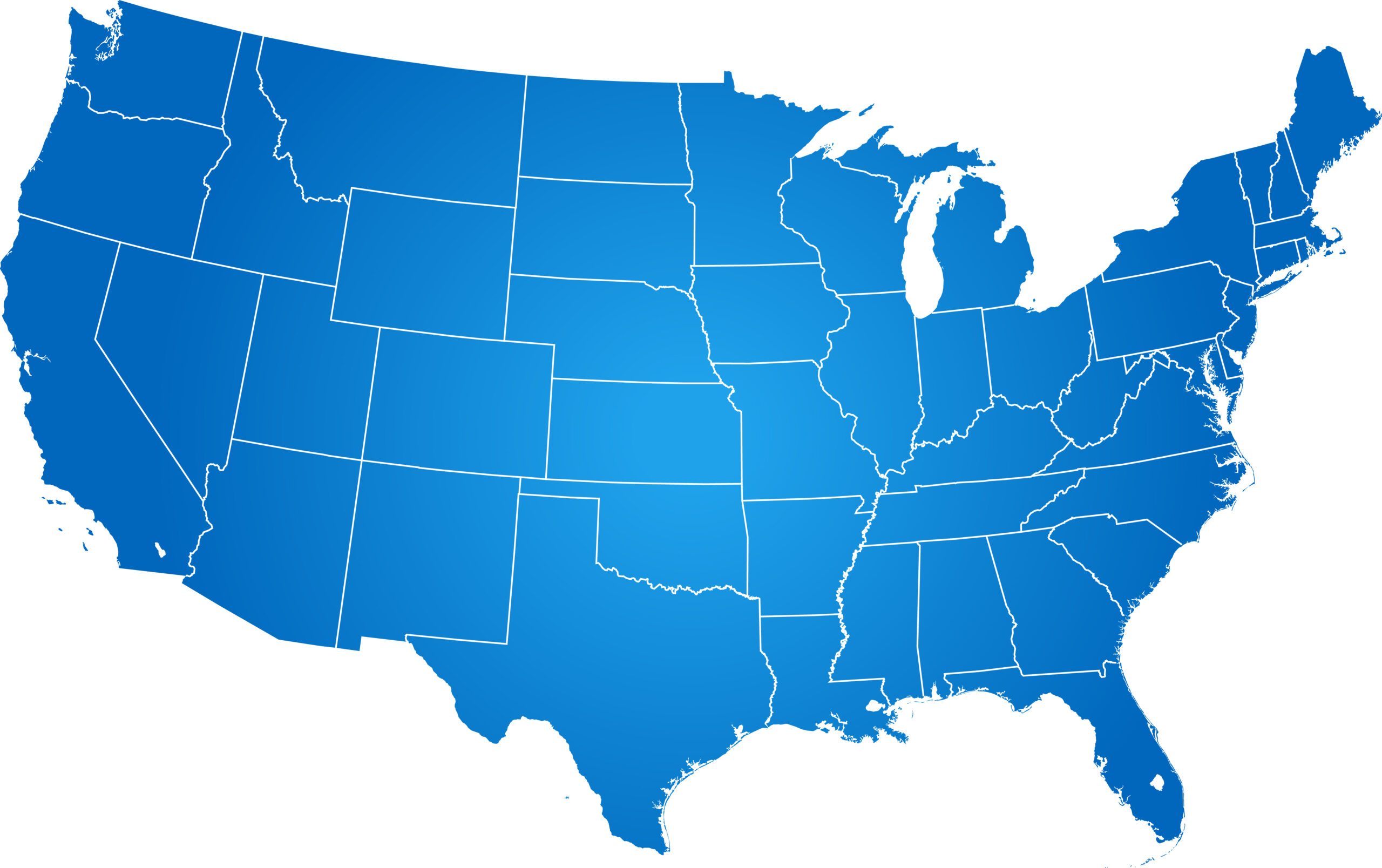The Disturbing State of Uber In California and France
You’ve probably read news reports of two current developments that are directly threatening the continued viability of Uber’s ride-sharing service — California’s ruling that Uber drivers are “employees” of the company, and France’s decision to indict two of Uber’s top French executives on criminal charges of “enabling illegal taxi services” that could bring fines and jail time. The company called the latter “[t]otally unheard of,” and a “piece of pure calumny,” and is appealing the former.
These represent just the latest conflict between the sharing economy and legacy regulations, issues we have explored several times at Project DisCo. Uber, which is in talks to raise more investments at a whopping $50 billion valuation, has rapidly upended entrenched taxi and transportation industries with its model of letting people hail rides via their smartphones. Airbnb has done the same thing to hotels and motels, with similar blowback from local regulators, as in New York City. Tesla’s direct automobile sales model has been opposed at the state level by auto dealers.
All of these examples share the common thread of treating innovative new services as if they were clones of traditional industries with which they compete, and thus subject to the same legal restrictions. But they are not. There’s no public policy or legal difference between asking a friend to drive you to the airport and hailing an Uber driver with the company’s smartphone app; both perform exactly the same function, and neither involves holding the driver or company out as offering “common carriage” transportation to the general public. The fact that modern technology allows on-demand ride-sharing to be organized at scale is precisely why Uber’s service is different from taxi rides. Cabs can cruise the streets, wait at hotels and airports for fares and, in many locales — like Washington’s Dulles Airport — enjoy a franchise monopoly. Uber drivers have none of those benefits, especially the municipal-sanctioned protection from new entry.
In fact, neither Uber drivers nor customers have any desire to replicate the bloated infrastructure and protective regulatory schemes that characterize taxi services across the United States, where competition on price — something Uber excels at — is essentially prohibited as a matter of law. Likewise, Airbnb users have no desire to buy the expensive bundle of hotel services and amenities, from doormen to health facilities to room service dining, that support hotel prices far higher than the cost of a room in which to grab some shuteye.
As TechCrunch commented:
Uber has argued repeatedly in various courts that it is not a transportation or taxi company, but rather a software platform that matches customer demand with supply. This ruling changes all that, turning Uber into a transportation startup instead of a logistics software company. That puts the company in a position to face a number of legal obstacles, as well as rising costs of employing those drivers directly and offering them benefits, etc…. [O]ne of Uber’s main costs is its full-time employees that work out of Uber corporate offices. If Uber drivers are deemed employees, the business model shifts drastically.
I’ve observed that it would be far preferable to live in a world where business competition is decided by consumers voting with their wallets, not officious regulators captured by the industries they oversee or an ill-informed judiciary making competition policy choices in the guise of addressing legal rights. As the FTC’s Staff concluded decades ago, the opposite is true as well. Instead of regulating new forms of competition as if they were the same as protected legacy industries, forward-thinking governments should instead deregulate monopoly services like taxis. There is “no persuasive economic rationale … for some of the most important [taxi] regulations…. Similarly, there is no economic justification for regulations that restrict shared-ride, dial-ride, and jitney service.”
How little we have learned as societies in the more than 30 years since that landmark FTC Staff study. The same arguments, principally related to high entry costs (for “medallion” purchases) bolstered by regulatory-mandated limits on supply, are being made today by the taxi industry, where Uber disintermediation has already caused the market rate for cab licenses to plummet. Yet it is France that has taken protectionism to a new extreme.
The concept that corporate executives can be criminally liable for operating a business, without any allegations of fraud or malfeasance, likely strikes most Americans as absurd. Of course, different nations have different legal systems, with different processes and substantive rules. But that does not offer a valid basis for indicting businessmen just because a particular jurisdiction is contemplating outlawing a new service. When innovators can be thrown in jail — those Uber execs already spent one night in the slammer — merely because civil authorities believe their invention is unlawful, we have moved from a policy debate over business models to something closer to political tyranny. The French Parliament passed a law essentially making the service illegal, a law Uber is contesting on a constitutional basis. Isn’t the correct response to ask the French courts to enjoin Uber’s operations under that law instead of using storm-trooper tactics to intimidate Uber, and Uber drivers, with criminal charges? (Indeed, this March a Paris court refused to issue an injunction against Uber in light of questions about the constitutionality of that new law.)
As Liz Alderman wrote in the New York Times magazine:
[Paris] has just 17,702 taxis, only a few thousand more than it had before the Nazis invaded. Yet virtually every time the government tries to expand the fleet, irate taxi drivers protest with a form of strike they call Operation Escargot, in which cabbies inch along thoroughfares, snarling traffic all over the capital.
A better reaction, as the Harvard Business Review opined earlier this year, would be to innovate in return, winning by competition instead of legal chicanery. Alderman observes cogently that the French government’s 2009 authorization of a new category of transport, called Véhicules de Tourisme Avec Chauffeur (VTCs), created “mostly black-car services that couldn’t be hailed in the street, so they seemed to pose little threat to the taxi monopoly. But when Uber’s black-car service came along in 2011, the market for VTCs exploded.”
Ridesharing is here to stay, technologically. The only open question is whether regulators (and prosecutors) will allow competition from the legacy taxi industry. If every car service were permitted to set whatever price they want, those cab drivers in Paris and New York would have no reason to protest and lots of financial reasons to laud the differentiation advantages (experience, safety, availability, etc.) their service offers in competition with Uber. But as Forbes commented, whether the sharing economy can survive in a regulatory world where its basic innovation paradigm of connecting people who want to engage in private, consensual transactions is treated legally as something completely different is the much harder, and more economically important, question.









